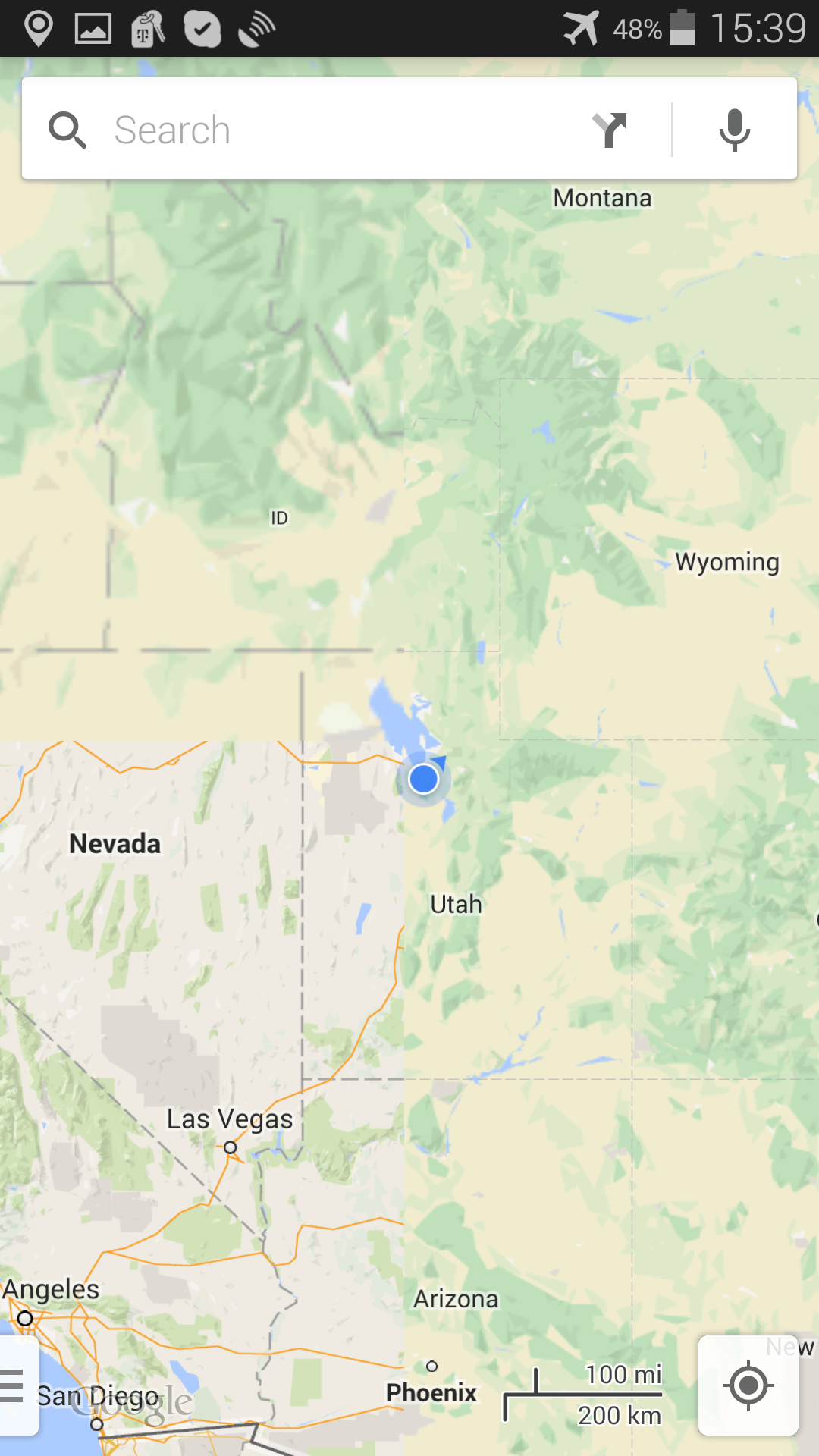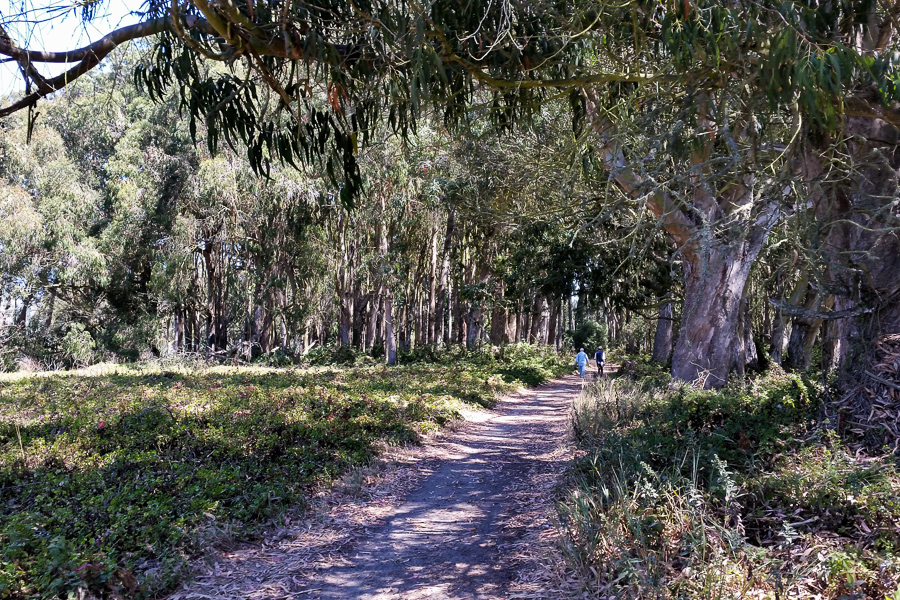No kidding:
“Our study shows that the longer people spend commuting in cars, the worse their psychological well-being,” says Adam Martin from the University of East Anglia. The study, just published in the journal Preventative Medicine, concludes that commuters with “active travel modes” are associated with higher rates of well-being than those who drive or use public transportation. Over an 18-year span, 18,000 British commuters were asked a number of questions to gauge their various levels of “well-being.” The questions ranged from, Have you been feeling unhappy and depressed? to Have you been able to enjoy your day-to-day activities? Responses were then correlated with the type of transportation used to arrive at work. The findings offer additional evidence that active commuters are thought to be happier, more focused workers.
The solution? Walk, even if just for part of the way:
Simply adding ten minutes of walking time to your commute, the study concludes, is associated with a boost in well-being. Importantly, the scientific definition of "well-being" is influenced by work-related traits like problem solving and completing tasks. Therefore, the researchers believe improved well-being also correlates to a more productive worker. The psychological benefits of an active commute appear so significant that driving should be a last resort. Even if you can drive to work in 10 minutes, the study suggests, an hour-long walk may be better for your well-being.
“We conclude that the potential benefits available to car drivers if they switched to active travel, and walking in particular, exceed any potential benefits associated with reducing commuting time,” write the team of researchers.
This is why I get off the bus a few stops early every morning. Oh—and why I live and work in a big city in the first place.
A week from today, part of a 400-year-old country may elect to secede:
YouGov’s latest survey has No, on 52%, narrowly ahead of Yes, 48%, after excluding don’t knows. This is the first time No has gained ground since early August. Three previous polls over the past month had recorded successive four point increases in backing for independence. In early August Yes support stood at 39%; by last weekend it had climbed to 51%.
Just one week ago, Scots divided evenly on whether their country would be better or worse off.
Yes, for those of you not paying attention to the Ancestral Homeland, next Thursday Scotland will hold a referendum on remaining in the United Kingdom of Great Britain and Northern Ireland.
If the referendum succeeds, it will set in motion a series of steps that could have Scotland become an independent nation within the EU by 2020. If this sounds like a bad idea to you, you're not alone. The economics are horrible, and that's even before figuring out whether Scotland will remain on Sterling. Never mind things like nuclear armaments, North Sea oil fields, and the fact that 400,000 English live in Scotland and a whopping 600,000 Scots live in England.
The Daily Parker votes No. My ancestors came down with James VI. The Union has always been stronger together.
From my first trip to New York, August 1984:

We live in a wondrous age of travel. The mobile phone has revolutionized it: You can get travel alerts, boarding passes, taxis, delay notifications—everything you need.
Against that you have the state of the human brain at 5 in the morning.
According to my mobile phone, I actually woke up at 6. But I'm not in my home time zone. Nor have I exactly gotten enough sleep this week. So when I woke up at 6, I started executing the Leave Louisville Plan, which did not, unfortunately, include checking my mobile phone for flight delays.
It's only a one-hour delay. But it's an hour I could have stayed in bed.
Smart phone, dumb guy.
West Monroe Partners (my employer, who have no editorial control over this blog, nor do they endorse anything I write here) has a thriving mergers and acquisitions practice. In order to provide appropriate advice to our private equity clients, we perform "diligences," which are thorough investigations of a company's strengths and weaknesses. Almost always, the target companies have technology assets that we evaluate as part of the diligence. Which is why I'm up at the crack of dawn in a hotel outside Phoenix.
Obviously I can't disclose anything about a diligence effort, or what kind of transaction is contemplated, or even what industry the company is in. In fact, sometimes I won't even know who the target is until I get there, as is the case today. So I am able to say nothing more about today's work than I'm in Arizona.
Still, the work is really interesting. We get pretty deep into the target's processes, methodologies, even sometimes their actual code and infrastructure. As a technology professional, it gives me exposure to different ways of doing things, especially what works and what doesn't. And it gets me out of the house for a day or two.
Of course, this will slow down posting a bit this week...
The Atlantic's CityLab blog looks at American streetcars and finds that infrequent service and slow speeds are their main problems:
Very few next-generation streetcar lines run with the sort of frequency that might counterbalance slow speeds or short distances. In a very smart post at his Transport Politic blog a couple weeks back, Yonah Freemark lamented that many U.S. streetcar (and, to be fair, light rail) systems built since 2000 fail to meet minimal service standards—often running just a few times an hour.
Good public transportation requires trains or buses to run every 10 or 12 minutes, five or six times an hour. Only two streetcars (Tacoma and Tucson) hit this mark. It's perhaps no coincidence that the brand new Tucson line also met its early ridership projections, even after ending a brief free-ride campaign and even before University of Arizona students were back on campus.
It's almost cargo-cult urban planning. Some streetcar systems—notably New Orleans'—work very well. So naturally urban planners saw streetcars as a way to improve central cities. But through lack of funding or lack of comprehension, they implemented the systems inadequately.
Of course, much of this comes from an inability to address the biggest issue with modern American infrastructure: we beatify cars. Maybe thinking about how to get people from one place to another without cars might help.
My new Android phone has a built in-GPS and a fairly large Google Maps cache. I'm sure this is true of other phones, but not of my old Windows phone, so until this past trip I couldn't do this:

And then, a few seconds later, I could do this:

I love this phone.
I walked about 17 km yesterday, including through here:

Yes, Northern California has its good bits.
Good morning. It's the 1st day of September, 2014, and meteorological summer is over. School is back, Labor Day is upon us (but only in the U.S., where it doesn't remind anyone of actual labor struggles), and I've had Parker for 8 full years. (The annual Parker Day photo will have to wait until he and I are both back home. I know, this is the second year running that I've missed the day itself. I hope he forgives me.)
On the whole, summer wasn't bad. Autumn should be fine as well: I'm attending a dear friend's wedding this month, going to London next month, and in between, aiming to walk Parker as much as our legs can carry us. Cleveland will be involved as well, though to what extent, I don't yet know.
Still, I'm not sure where summer actually went. May doesn't seem that long ago.
When I visit my folks in northern California for short visits, I use the same trick to ward off jet lag that I use in London: I stay on Chicago time. This means, however, that I get up around 5:30 and hike over to the Peet's to work until everyone else wakes up.
Combine that with this being the end of August and it really brings home how short the days are getting. At home I've already noticed how gloomy it is at 6:30; here, I'm leaving the house at 5:45, almost an hour before sunrise. The last time I visited California, in May, I walked to the coffee shop at dawn. Today I thought it prudent to bring a flashlight.
Chicago has lost 74 minutes of daylight since August 1st, and will lose another 100 minutes by the end of September.
We'll also get cooler weather, changing leaves, sweaters, and longer walks with Parker, so it's not all bad.